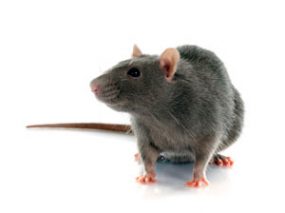Preventing Seoul Virus Infection in Pet Rats and People
Download Fact Sheet Cdc-pdf
What is Seoul virus?
- Seoul virus, a type of hantavirus, is carried by Norway rats and can make you sick. When people are infected with Seoul virus, they may have mild or no symptoms, but some people will develop serious illness that may require hospitalization.
- Rats that carry Seoul virus do not appear sick.
How do people get Seoul virus?
- People get Seoul virus when:
- They come in contact with urine, droppings, or saliva of infected rats.
- They breathe in virus particles.
- They get bitten by an infected rat.
- You do not have to touch pet rats to get infected with Seoul virus or other germs.

How can you protect yourself and your pet rats from getting Seoul virus?
-
The best way to protect yourself is to prevent Seoul virus infections in pet rats.
- Consult your veterinarian about testing new rats for Seoul virus before they are introduced to a new home, especially if they will be living with other rats in a home or breeding facility.
- Keep wild rats (which naturally carry Seoul virus) away from your pet rats by taking steps to prevent rodent infestations.
- Pet rodents, including pet rats, are not recommended for families with children 5-years old or younger, pregnant women, or people with weakened immune systems as they are at a greater risk of serious illness.
How to safely care for your pet rat
- Always wash hands immediately after touching, feeding, or caring for pet rats or cleaning their habitats
- Play safely. Do not kiss, nuzzle, or hold pet rats close to your face.
- Never eat, drink, or smoke while playing with or caring for your pet.
- Ensure rat enclosures are properly secured and safe so your pet does not get hurt or contaminate surfaces (pet rats can shed germs like Seoul virus that can contaminate areas where they live and roam).
- Keep pet rats and their supplies out of the kitchen or other areas where food is prepared, serviced, or eaten.
- Talk to your veterinarian about your pet’s health; they can help you and your pets stay healthy.
- Tell your healthcare provider that you have been around pet rats, especially if you are sick or have been bitten or scratched.

How to safely clean up after your pet rat
Preparing cleaning solution:
- Seoul virus is sensitive to most general-purpose household disinfectants, including diluted bleach.
- For commercial disinfectant, follow manufacturer’s instructions on the label and disinfection time.
- Use these products in an area separate from where your rat is housed as rodents may be sensitive to disinfectant fumes.
- Allow time for disinfected items to dry and air out before putting in contact with rats

Cleaning pet rat habitat:
Soiled bedding is one way pet rat owners can become infected with Seoul virus. Take the following steps to prevent infections even if your rat is not known to be infected with Seoul virus.
- Wear disposable waterproof gloves when cleaning up after pet rats.
- Clean and disinfect rodent habitats and supplies outside the home when possible for better ventilation.
- Use a laundry sink or bathtub in a well-ventilated area if cleaning rodent supplies indoors.
- Never clean rodent habitats or their supplies in the kitchen sink, other food preparation area, or the bathroom sink.
- Clean and disinfect the area immediately after cleaning.
- Wet down soiled bedding with disinfectant or bleach solution before bagging for trash disposal to reduce generating dust.
- Clean empty cages/enclosures with disinfectant or bleach solution and allow it to dry completely.
- Wet down spilled bedding or droppings with disinfectant or bleach solution before vacuuming.
- Wash hands immediately after cleaning pet rat habitat.
Extra cleaning and handling steps are needed if a pet rat is known or suspected of being infected with Seoul virus. Because rats infected with Seoul virus can transmit infection to other rats and people, CDC recommends euthanasia of infected rats. Please contact your veterinarian or public health department if you have a rat that you know or suspect may be infected with Seoul virus.
For more information, contact CDC-INFO
1-800-CDC-INFO (1-800-232-4636)/TTY 1-888-232-6348
Page last reviewed: May 7, 2018